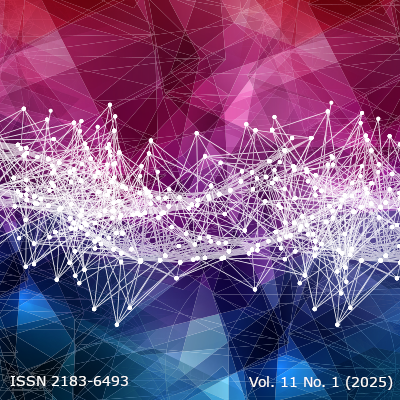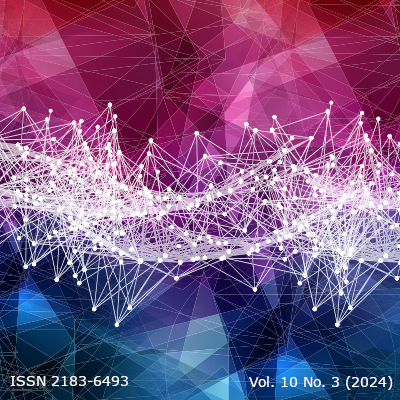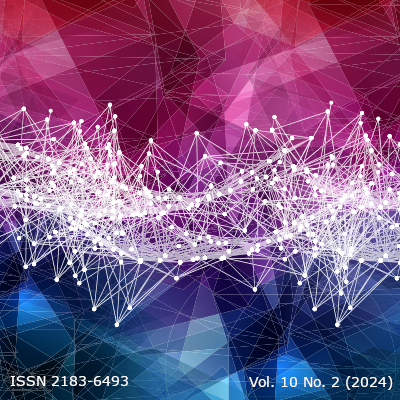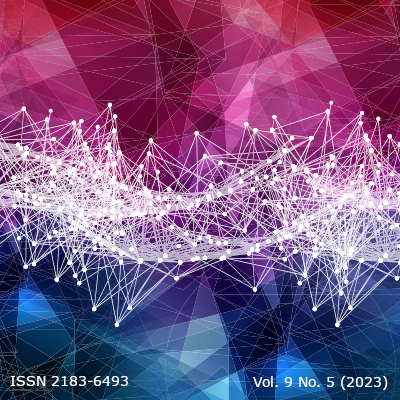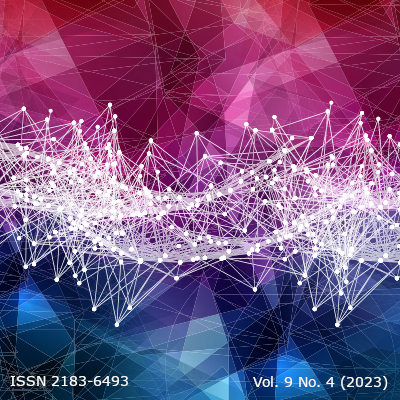Chemical Product Engineering (MIEQ)
Vol. 10 No. 2 (2024)
Product Engineering is an essential component in engineering training. The jobs in the Chemical Engineering sector have been evolving from commodities production to product development, particularly in countries such as Portugal, where the scale of production is more adapted to customized or medium-sized series than mass production. So, in 2009, the Master’s in Chemical Engineering Programme at the Faculty of Engineering of the University of Porto (FEUP) started a course on Product Engineering. In 2022, a special issue in the U.Porto Journal of Engineering was published, which included a series of selected works developed within the Product Engineering course at FEUP (Silva et al. 2022). The same methodology for product development laid in four cornerstones was kept in this course:
- Identification of market NEEDS;
- Coming up with several technical solutions to meet those NEEDS (IDEAS);
- The process of screening a small set of the best IDEAS (SELECTION);
- The study of the implementation of IDEAS considers time to market, industrial process design, regulation, Intellectual Property Rights, and economic analysis (MANUFACTURE).
In the last edition of the Product Engineering course (2023-24), integrated process simulation tools, namely Super Pro Designer and ASPEN, were used by the students. This enabled the students to apply know-how acquired during the Chemical Engineering course and to obtain a more accurate design of the processes and CAPEX and OPEX estimation. Thus, this second Special Issue includes some of the works already incorporating this new feature.
Education and Research in Spatial Planning: Perspectives and Challenges
Vol. 9 No. 2 (2023)
This special issue of U.Porto Journal of Engineering aims to celebrate the 50th anniversary of the creation of the specialization in Territorial Planning (1972-2022), in the Civil Engineering Department of the Faculty of Engineering - University of Porto. To disseminate this celebration, some original research articles were prepared, visioning not only the historical activity of Spatial Planning Education but also the current challenges facing the articulation between student training and research. The articles are a sample of representative research of themes currently developed in the field of Spatial Planning at FEUP.
The special issue has been structured in two sections. The first section concerns (i) The history of Planning Education in FEUP; (ii) Planning thoughts: The evolution of themes and methodologies in FEUP’s dissertations; (iii) and the development of Spatial Planning at FEUP: from education to research. The second section is mainly aimed at reflecting on (i) Spatial Planning and Climate Transition; (ii) Transformative and Inclusive Urban Policies; (iii) Mobility, Accessibility and Transport Planning; (iv) and Digital Technology in Spatial Planning.
Guest Editors:
Fernando Brandão Alves
Isabel Breda Vázquez
Paulo Pinho
Paulo Conceição
Chemical Product Engineering (MIEQ)
Vol. 8 No. 5 (2022)
Product Engineering is a crucial competence for a modern engineer. The jobs in the Chemical Engineering sector have been evolving from commodities production to product development. So, the universities changed the curricula of Chemical Engineering to keep up with industry needs. Product development is particularly relevant in Portugal, where Small to Medium companies dominate the industrial sector, both in terms of number and job creation.
More than a decade ago, in 2009, the Master in Chemical Engineering Programme at the Faculty of Engineering of the University of Porto (FEUP) started a course on Product Engineering. Prof. Alírio E. Rodrigues initially introduced this course based on the methodology of Cussler and Mogridge (2001, 2011). A detailed analysis of the implementation of Product Engineering in Chemical Engineering curricula was later published by Rodrigues and Cussler (2016).
In a nutshell, the chemical product development methodology lays in four cornerstones:
- Identification of market NEEDS;
- Coming up with several technical solutions to meet those NEEDS (IDEAS);
- The process of screening a small set of the best IDEAS (SELECTION);
- The study of implementation of the IDEAS, considering aspect as time to market, industrial processes design, regulation, Intelectual Property protection and economic analysis (MANUFACTURE).
DCE 2021 - Special Issue
Vol. 8 No. 4 (2022)
The Symposium on Environmental Engineering (SEE), organized in the scope of the 4th Doctoral Congress in Engineering (DCE21), was hosted at the Faculty of Engineering of the University of Porto (FEUP), Portugal, on June 28th and 29th, 2021. This event was organized in virtual mode by Ph.D. students of the Doctoral Program in Environmental Engineering (PDEA) at FEUP, with the support of their professors. A book of abstracts was published gathering all the SEE-related information (ISBN: 978-972-752-280-4). The SEE covered multidisciplinary themes, with 26 oral and 40 poster presentations comprising a wide range of topics within the United Nations Sustainable Development Goals (SDGs):▪Clean Water: Emerging Pollutants, Monitoring, and Treatment; ▪Air Quality: Emissions, Assessment and Health Safety; ▪Waste Management and Circular Economy; ▪Energy, Sustainability and Innovation: Products, Technologies, and Climate Change Mitigation. In this edition, the SEE reached a record number of abstract submissions and registrations with more than 100 participants, including a representative number of international participants from Angola, Brazil, Colombia, Cyprus, Greece, Hungary, Luxembourg, and Spain. After going through a peer-review process, 5 papers were accepted for publication in this Special Issue.
DCE 2021 - Special Issue
Vol. 8 No. 3 (2022)
This special issue of University of Porto Journal of Engineering contains selected papers presented at the 4th Symposium on Engineering Physics that took place on the 28th and 29th of June 2021, in the Doctoral Congress in Engineering 2021.
This symposium results from the joint organization by the Department of Engineering Physics of the Faculty of Engineering of the University of Porto (FEUP) and the Physics and Astronomy Department of the Faculty of Science of the University of Porto (FCUP). Following the previous editions, the 4th Symposium on Engineering Physics (EP) has received widespread contributions from all major Portuguese research institutions involved in Engineering Physics fields. The submitted works depict the current scientific trends in Engineering Physics, and include topics as varied as optical and biosensors, smart materials, optoelectronics, nanotechnology, and quantum studies.
STE2021 - Special Issue
Vol. 8 No. 1 (2022)
This special issue of University of Porto Journal of Engineering contains selected papers presented at the 2nd International Conference on Science and Technology Education STE 2021, held at Faculty of Engineering of the University of Porto (FEUP), Portugal, during 7-8 October 2021.
This conference is held every two years. The conference is co-chaired by António Ferreira (University of Porto, Portugal) and Lucas F. M. da Silva (University of Porto, Portugal). The goal of the conference is to provide an international forum for the sharing, dissemination and discussion of research, experience and perspectives across a wide range of teaching and learning issues. About 50 papers were presented by researchers from nearly 20 countries.
MDA2020 - Special Issue
Vol. 7 No. 2 (2021)
International Conference on Materials Design and Applications 2020 (MDA 2020), held online during 5-6 November 2020. The goal of the conference was to provide a unique opportunity to exchange information, present the latest results as well as to discuss issues relevant to materials design and applications. The focus is on fundamental research and application areas in the field of the design and application of engineering materials, predominantly within the context of mechanical engineering applications. This includes a wide range of materials engineering and technology, including metals, e.g., lightweight metallic materials, polymers, composites, and ceramics. Advanced applications include manufacturing of new materials, testing methods, multi-scale experimental and computational aspects. Approximately 155 papers were presented by researchers from nearly 30 countries.
STE2020 - Special Issue
Vol. 7 No. 1 (2021)
This special issue of U.Porto Journal of Engineering contains selected papers presented at the 1st International Conference on Science and Technology Education STE 2020, held at the Faculty of Engineering of the University of Porto (FEUP), Portugal, during 15-16 October 2020. The conference is co-chaired by António Ferreira (University of Porto, Portugal), Lucas F. M. da Silva (University of Porto, Portugal) and Claudio R. Brito (COPEC, Brazil). Its goal is to provide an international forum for the sharing, dissemination and discussion of research, experience and perspectives across a wide range of teaching and learning issues. About 50 papers were presented by researchers from nearly 20 countries.


